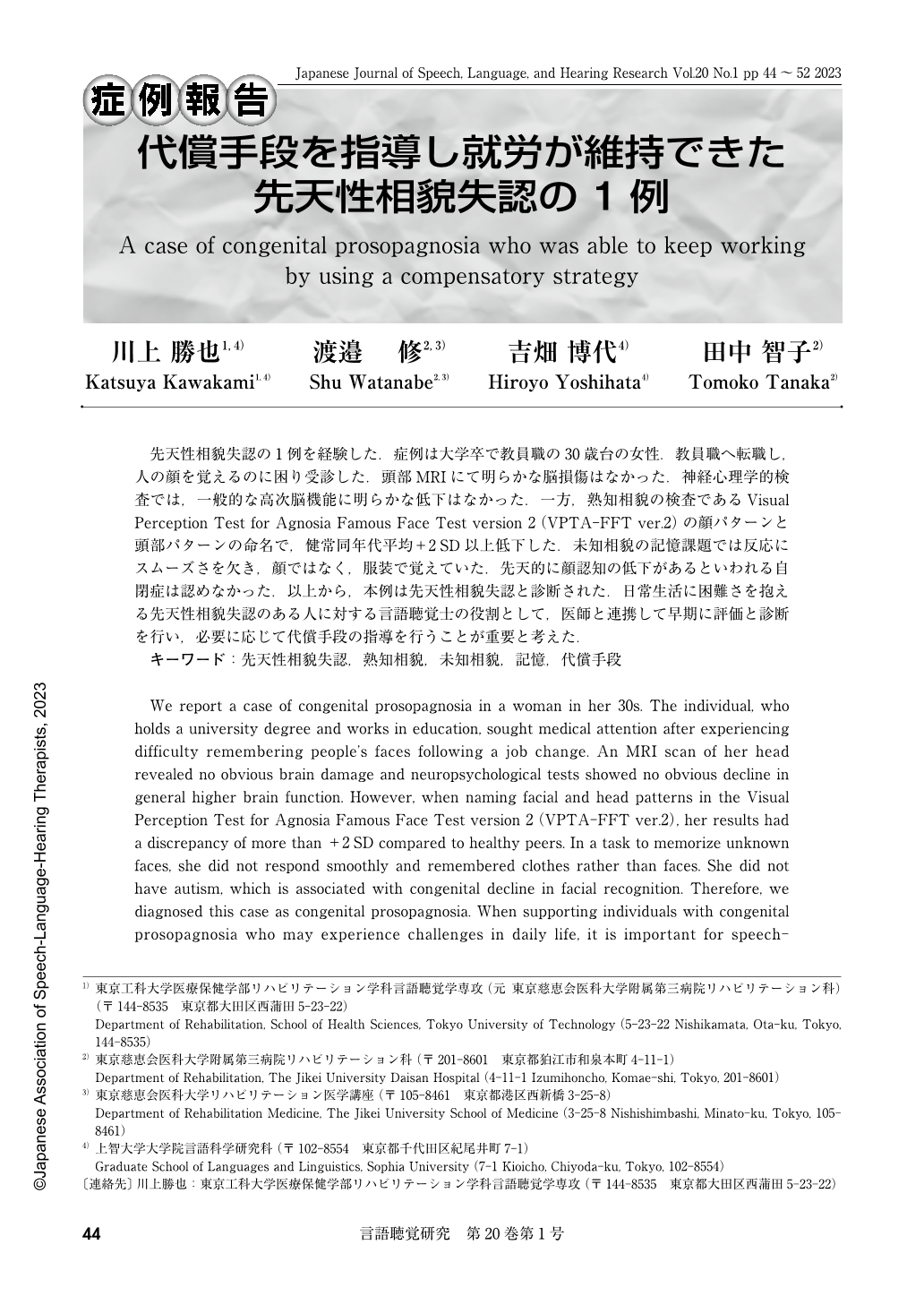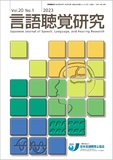Japanese
English
- 有料閲覧
- Abstract 文献概要
- 1ページ目 Look Inside
- 参考文献 Reference
先天性相貌失認の1例を経験した.症例は大学卒で教員職の30歳台の女性.教員職へ転職し,人の顔を覚えるのに困り受診した.頭部MRIにて明らかな脳損傷はなかった.神経心理学的検査では,一般的な高次脳機能に明らかな低下はなかった.一方,熟知相貌の検査であるVisual Perception Test for Agnosia Famous Face Test version 2(VPTA-FFT ver.2)の顔パターンと頭部パターンの命名で,健常同年代平均+2SD以上低下した.未知相貌の記憶課題では反応にスムーズさを欠き,顔ではなく,服装で覚えていた.先天的に顔認知の低下があるといわれる自閉症は認めなかった.以上から,本例は先天性相貌失認と診断された.日常生活に困難さを抱える先天性相貌失認のある人に対する言語聴覚士の役割として,医師と連携して早期に評価と診断を行い,必要に応じて代償手段の指導を行うことが重要と考えた.
We report a case of congenital prosopagnosia in a woman in her 30s. The individual, who holds a university degree and works in education, sought medical attention after experiencing difficulty remembering people's faces following a job change. An MRI scan of her head revealed no obvious brain damage and neuropsychological tests showed no obvious decline in general higher brain function. However, when naming facial and head patterns in the Visual Perception Test for Agnosia Famous Face Test version 2 (VPTA-FFT ver.2), her results had a discrepancy of more than +2SD compared to healthy peers. In a task to memorize unknown faces, she did not respond smoothly and remembered clothes rather than faces. She did not have autism, which is associated with congenital decline in facial recognition. Therefore, we diagnosed this case as congenital prosopagnosia. When supporting individuals with congenital prosopagnosia who may experience challenges in daily life, it is important for speech-language-hearing therapists to collaborate with medical doctors to conduct early evaluation and diagnosis, and to provide guidance on appropriate compensatory strategies.

Copyright © 2023, Japanese Association of Speech-Language-Hearing Therapists. All rights reserved.


